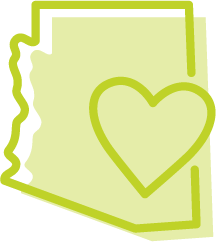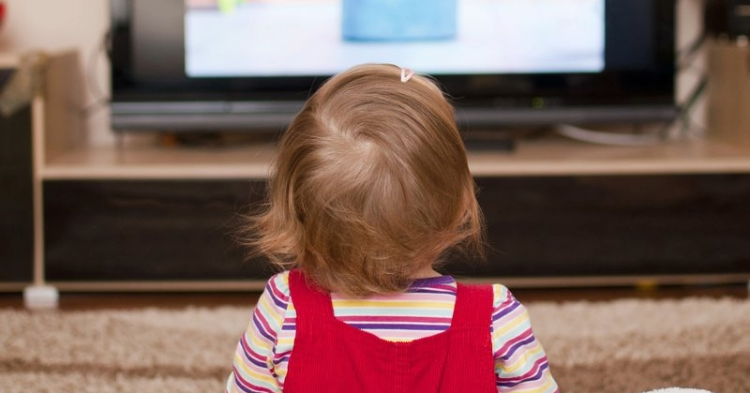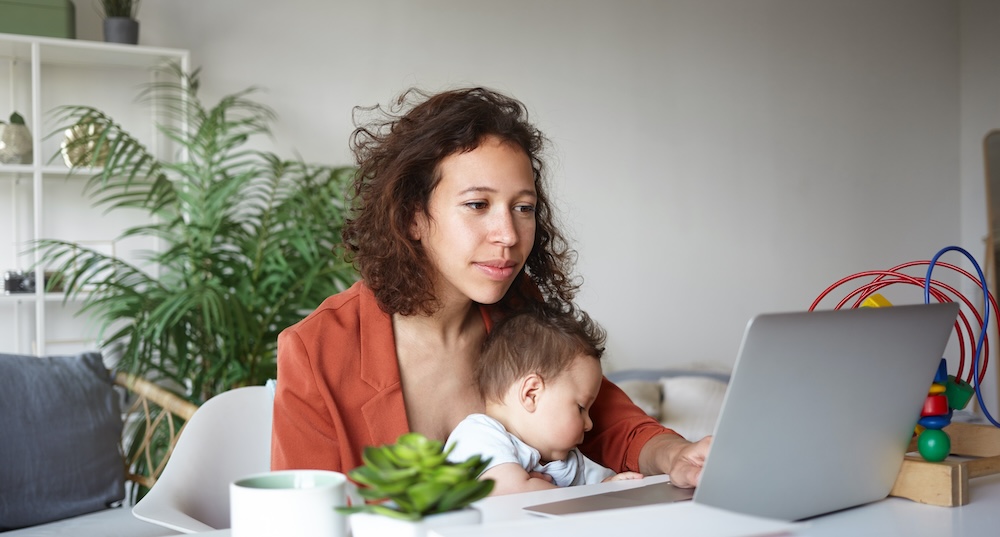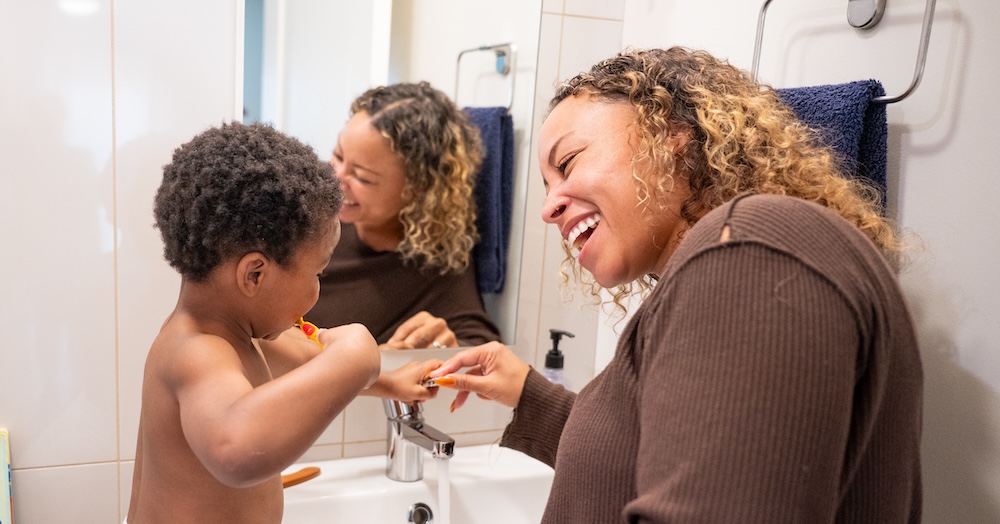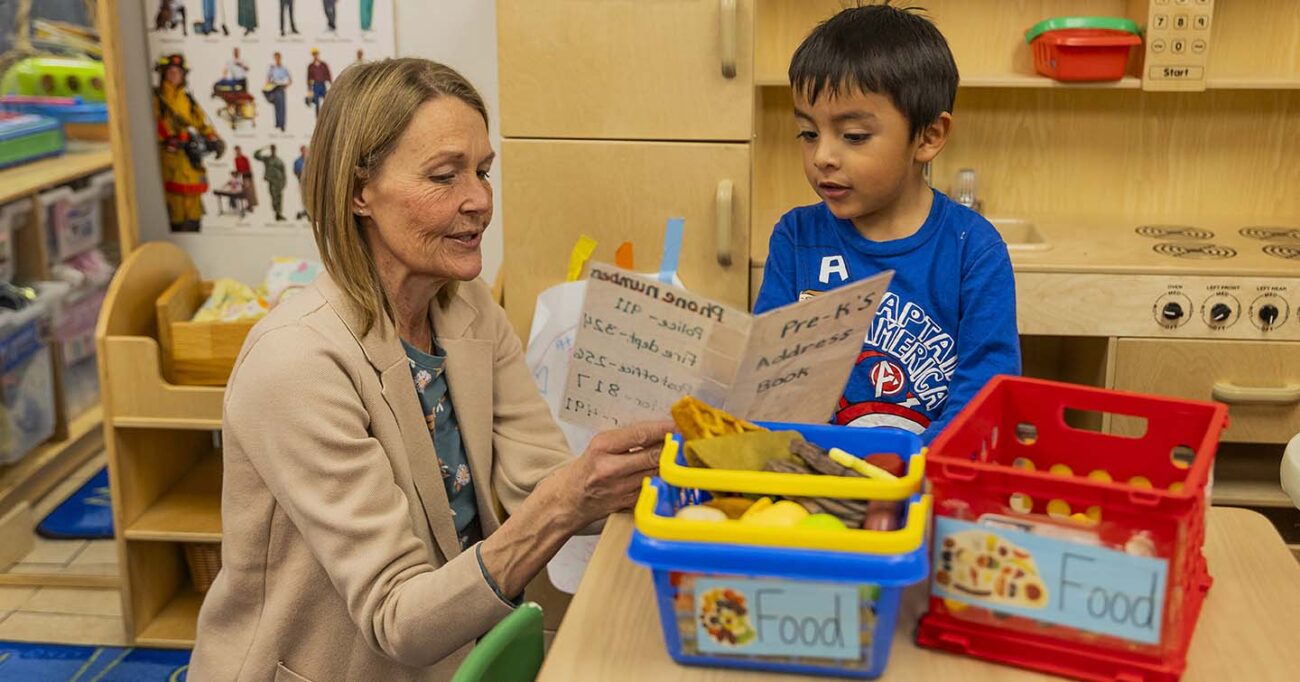
The COVID-19 pandemic disrupted life for all of us, but for the youngest children—babies and toddlers born just before or during the pandemic—the effects have been especially deep. Known by many as “COVID babies,” these children entered the world in a time of isolation. They missed out on birthday parties, story times at the library, visits with grandparents and regular playdates with other kids.
Now, as they enter preschool and kindergarten, many teachers are seeing the impact. According to a story in The Hill, a media outlet that covers policy and politics in Washington D.C., children are starting school behind—not just in reading and math, but in skills like sharing, following directions and managing emotions.
Children are starting kindergarten behind
For some, it’s the first time they’ve spent the day with a large group of peers or been in a structured classroom. That’s a big leap for a 5-year-old. Ginger Sandweg, Senior Director for Early Learning with First Things First, has heard these stories repeatedly over the last several years from child care providers.
“We think a lower group size or maybe additional adult support in the classroom, like a teacher’s aide, could be helpful for kindergarten programs. I do think significant family engagement is going to be really helpful to support these young children and families.” Sandweg explains.
Families worked hard to fill the gaps, but young children learn best through in-person play, exploration and caring relationships with trusted adults. These are experiences that a screen can’t fully replace.
Early childhood education is the foundation
Early childhood education is more than a stepping stone to kindergarten—it’s the foundation for all future learning. High-quality programs give children the chance to build language skills, practice problem-solving, and learn how to work with others. Just as important, they help children gain the confidence to try new things and the resilience to handle challenges.
Research shows the benefits of early learning last well beyond the preschool years. Children who have access to quality programs are more likely to succeed in school, graduate on time and go on to college or career training. For “COVID babies” starting school behind, these programs can be the bridge that helps them catch up and thrive.
Arizona’s opportunity to help
In Arizona, fewer 3- and 4-year-olds attend preschool compared to the national average. Even before the pandemic, access to high-quality early learning was uneven, with many families struggling to find or afford care. COVID-19 made this harder—program closures and reduced spots left many without options.
We have a choice. We can let these gaps grow wider, or we can make targeted investments in early childhood programs that give every child a strong start.
View this post on Instagram
Change doesn’t happen without community voices. Parents, early childhood providers and concerned citizens can make a difference by urging elected officials to prioritize early childhood education. That means securing funding for high-quality learning and child care, expanding access in underserved areas and supporting programs like First Things First that are dedicated to young children’s success.
Take action today
COVID may have set our children back, but it also reminded us how important the early years are. By investing in early childhood education now, we can put our youngest learners on a path to lifelong success.
Tell your friends, family and local leaders that Arizona needs support for early childhood education. Both politically and financially. Because when we invest in our youngest children, we invest in Arizona’s future.


